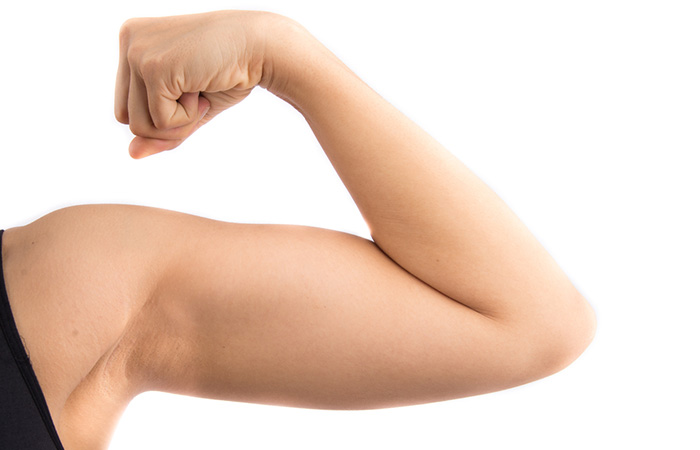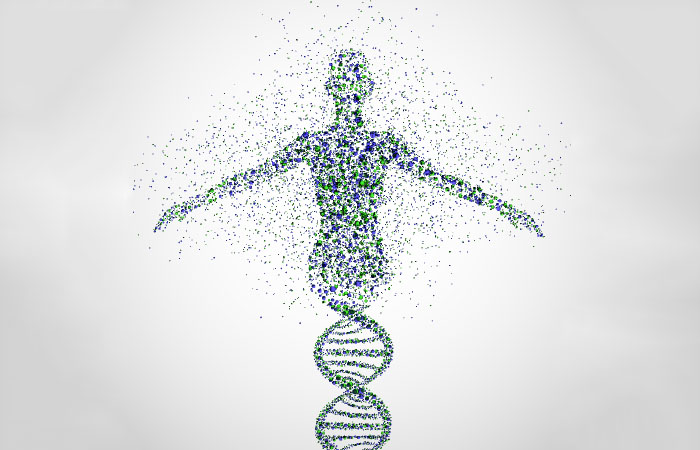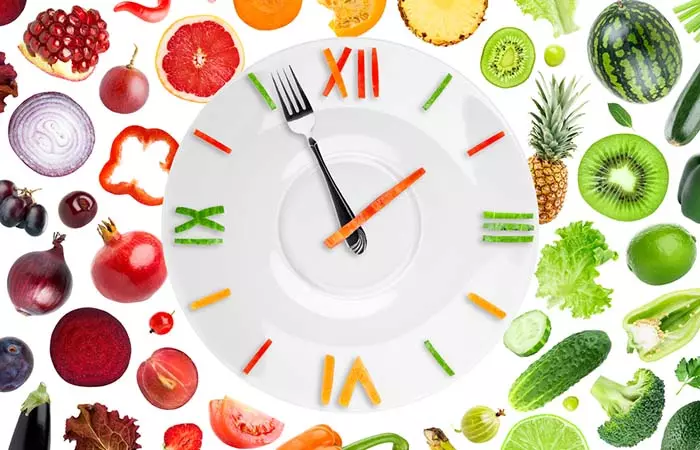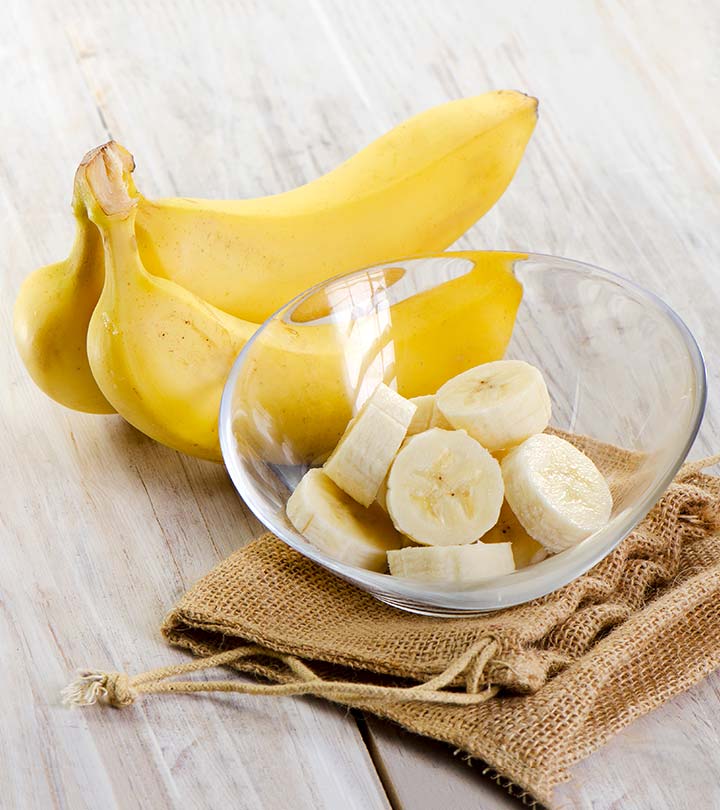It is frustrating when you do not lose weight, even after straining. If you exercise, controlling carbohydrate cravings and making lifestyle changes are not enough to lose weight, so what is it? It is in these desperate moments that 99% of women give up their weight loss agenda. After all, it is better to savor the delight and be flaccid than to deprive yourself. Okay. But this is a trap. And before falling in love with him, take a look at the real reasons not to lose weight. Science says there are many factors that affect weight loss. Let me tell you what they are.
Why am I not losing weight
#1. Know the Difference Between Fat and Mass

Did you know that weight loss is confused with fat loss and muscle building? When you say you want to lose weight, reformulate it and say you want to get rid of sagging. Initially, when your weight loss program begins, you lose water weight, which will be displayed on the scale. But after a few days, your body will begin to build lean muscle mass, and the more you eat sources of protein and exercise, the more muscle you will develop and the more toned you will be.
Lean muscle mass can increase your balance, which can cause you to feel that you are gaining weight instead of losing it. To summarize, always look at the percentage of body fat to know if you are losing fat or not. You can calculate body fat in any gym.
#2. Your weight loss goals are not realistic
Unrealistic weight loss goals can also be disappointing. Personally I heard many women say they wanted to lose weight, but they were in the healthy weight range. However, if you need to lose weight, continue, but keep your goals realistic.
It is not possible to lose 10 pounds in a week, and I am talking about fat weight and not water. Fad diets can promise the impossible, but they cannot guarantee permanent weight loss. You should always aim to lose fat gradually. Write your short-term goals in a journal.
For example, without sugar in drinks or lose 2 pounds in a week. This will make your goals more realistic and attainable. And once you have reached your short-term goals, one by one, you will notice a big difference in your appearance, brain function, muscular action, and mental fitness.
#3. Do you think you eat healthily?

Isn’t it a real problem when you eat healthily and still don’t lose half an inch? You are amazed and disappointed. Take a second look at your day’s meals, especially when you eat or drink drinks. Ideally, your food should contain a good source of protein, dietary fiber, complex carbohydrates, and healthy fats. You should get 10 to 35% of protein calories, 45% to 65% of carbohydrates and 20% to 35% of healthy fats.
Lean protein sources are chicken breast, ground turkey, cuts of pork, mushrooms, vegetables and beans, tofu and chunks of soy. You should consume vegetables and fruits to get the necessary amount of dietary fiber and complex carbohydrates. Eat nuts, seeds, avocado, clarified butter, olive oil, flaxseed oil, flaxseed butter, etc. to provide the body with healthy fats.
In addition, you must control what you are eating. That’s where many of us are wrong. Energy drinks, packaged fruit and vegetable juices, soft drinks, coffee with cream and sugar, potato wafers, ranch dressing, mayonnaise, fried chicken and even eating too many vegetables and fruits as a snack can hamper your loss of weight.
To find out if you are really eating healthy, keep a food diary and record what you are eating and how much you are eating for a week. This will give you a good idea of where you should make some changes or if there is something else that prevents you from losing weight.
#4. Your hormones are going Berserk
Hormones play a very important role in a woman’s life. Hormones such as cortisol (released when you’re stressed), ghrelin (hunger hormone), thyroid (hypothyroidism can lead to weight gain), insulin (too much insulin in the blood can cause insulin resistance, weight gain, and diabetes) and A Leptin (too much leptin in the blood and the brain is insensitive to food and still eating) can wreak havoc on your health.
Worst part? Initially, you won’t even understand that it is your hormones that make you eat so much or slow down your metabolism. Talk to a nutritionist or doctor and control your hormones. Follow his advice to balance your hormone levels. You can also read this article to find out what hormones affect weight loss and what you can do about it.
#5. You are not doing mixed training

So, you are exercising and you have lost some weight, but now you are not losing sagging. The important question is: are you limited to just cardio? If so, here is your answer to not lose weight. Cardio is excellent, but you should also incorporate weight training into your routine. Weightlifting will help keep muscles active, increase metabolism and tone the body.
#6. Underlying medical problems
Medical problems such as thyroid problems, insulin resistance, PCOS, sleep apnea, Cushing’s syndrome, etc. It can prevent weight loss. If you did everything right, but a medical exam has not yet been done, do it immediately. However, you do not need to worry, since most medical problems can be treated. Work with your doctor, nutritionist, and coach to help you lose weight the right way.
#7. Know your genes to fit in those jeans

Genes play the most important role in all living things. They determine our physical appearance, internal functions, and even our behavior. If you have seen people who eat a lot but are still thin, you know what I am talking about. Genes that automatically slow down your metabolism or cause a hormonal imbalance can make weight loss very difficult.
In that case, you should consult a doctor and a physical trainer to reduce its effects. It has been found that a good lifestyle, exercise routine, and proper eating habits help a lot. But because not everyone’s body works the same way, you should get a personalized plan to help trigger weight loss.
#8. Not Drinking Enough Water
About 75% of your body weight is water. Water helps maintain homeostasis, maintains turbulent cells and helps with various biological reactions and functions, digestion and absorption, transport of chemicals and elimination of toxins. When you don’t drink enough water, all these functions are not performed correctly.
And when that happens, your metabolism slows down, your cells start producing different proteins, no toxins are released and proper digestion is inhibited. If you are trying to lose weight, your metabolism, digestion, excretion and cellular function should be at optimal levels. Without consuming adequate amounts of water, this is not possible. Therefore, drink 3-4 liters of water every day. Drink more if you are exercising.
#9. You do not consume enough protein

Protein is an integral part of your body. From your hair to your body’s enzymes, everything is protein. A good amount of lean protein will help you build lean muscle mass and give you a toned appearance. In addition, proteins are difficult to digest and can create a negative energy balance, which helps you lose weight. You should consume at least one source of protein with each meal. Include them in your diet: chicken breast, ground turkey, mushrooms, vegetables, soybeans, soy milk, tofu, etc. You should consume 0.8 g of protein per kilogram of your weight.
#10. Follow the wrong cooking method
You can buy the right ingredients, eat in the right amounts and exercise, but you still won’t lose weight if your cooking method is incorrect. Frying, cooking for a long time or charring can decrease the nutritional value of the ingredients and change their properties, which can be harmful to your body. So try to eat raw, sauteed, peeled and cooked vegetables. Grill or bake or add meat to soups. Use cooking spray or extra virgin olive oil for cooking. Avoid eating fried or charred foods.
#11. You Have A Desk Job

If you have a job at the table, you probably sit in one place for at least 8 hours a day. And that is inhibiting your weight loss. Sitting in a place continuously can also slow down your metabolism and make every piece of food turn into fat. That is why people who work at the table have more abdominal fat and less body fat.
You should start moving every hour to maintain your metabolism and help your circulatory system transport food, oxygen and water to various parts of the body, in addition to eliminating toxins.
#12. Avoid fat
You need to consume healthy fats if you want to get rid of them. Healthy fats contain omega-3 fatty acids that help reduce inflammation, thus preventing weight gain induced by inflammation. Fats are also necessary to maintain cell structure and function.
Eat almonds, nuts, macadamia, pistachio, olive oil, rice bran oil, flaxseed, flaxseed butter, chia seeds, pumpkin seeds, sunflower seeds, sunflower seed butter, peanut butter, and clarified butter ( ghee) But be sure to control the amount, since excessive consumption of healthy fats can also lead to weight gain.
#13. You have not yet reduced your sugar/carbohydrate intake.

Sometimes we consume foods without knowing that they contain sugar or carbohydrates in large quantities. Check the labels to add HFCS and flavoring agents. Sauces and ketchup contain a lot of sugar and carbohydrates, so avoid them. Buy simple cereals, avoid salted or sugar-covered nuts and do not consume too many multigrain cookies.
#14. You skip a meal to reduce calories
Skipping a meal to reduce calories never works. When you skip a meal, your brain slows down. This, in turn, slows metabolism and digestion. In addition, you will eat more during the next meal, as you will starve and feel good to eat more when you skipped a meal. However, the body stores additional foods in the form of fat. Eat every 3-4 hours, check your portion size and do not skip breakfast.
#15. Eat too often

Some people have a habit of eating too often, which ultimately leads to weight gain. In fact, even if you eat healthily and exercise regularly in the gym, eating too often will create a positive energy balance. This will lead to weight gain. As mentioned earlier, you should eat every 3-4 hours, not every hour. Drink water if you are hungry. We often tend to feel hungry when we are thirsty.









